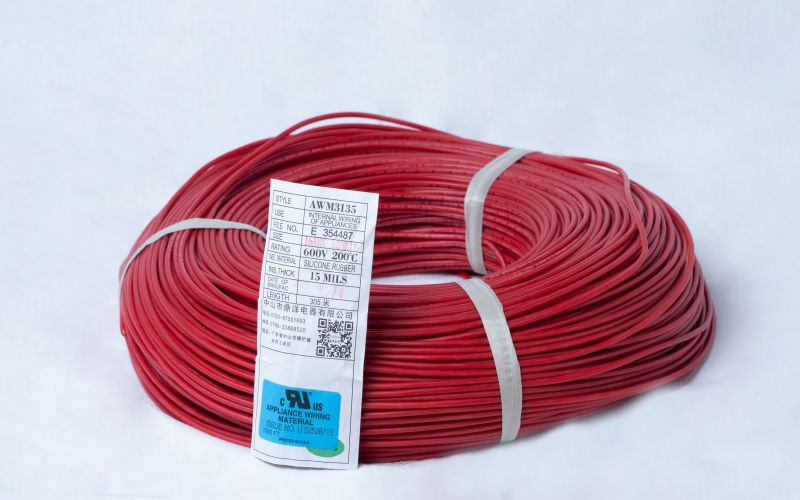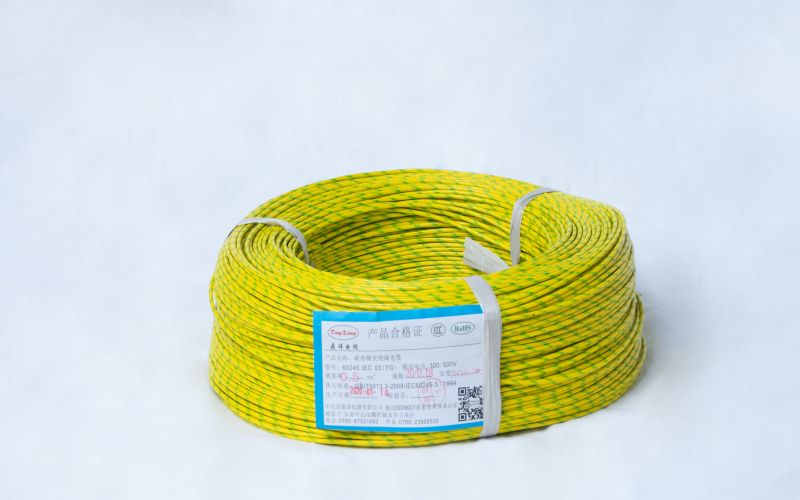High temperature wire plays a crucial role in industrial, automotive, and electrical applications where standard wires would fail under extreme heat. To ensure reliability, durability, and safety, high temperature wire must meet strict industry standards and regulatory guidelines. Whether used in aerospace, power generation, or manufacturing, selecting high temperature wire manufacturers that comply with recognized standards is essential. This article explores key safety certifications and performance requirements for high temperature wire 12 AWG and other wire types.
1. UL (Underwriters Laboratories) Standards
UL is one of the most recognized safety certification bodies in the electrical industry. High temperature wire should comply with UL standards to guarantee performance under extreme conditions.
UL 83 – Covers thermoplastic-insulated wires, ensuring they can withstand heat and electrical stress.
UL 510 – Specifies flame-retardant properties for insulation materials.
UL 758 – Applies to appliance wiring materials, ensuring resistance to high temperatures.
UL 567 – Governs heat-resistant wires used in industrial applications.
When choosing high temperature wire 12 AWG, verifying UL certification ensures the wire is tested for electrical and thermal stability.
2. CSA (Canadian Standards Association) Certification
For applications in Canada, high temperature wire must meet CSA standards, ensuring safe electrical performance in harsh environments. CSA approval is similar to UL certification and is often required for international distribution.
CSA C22.2 No. 210 – Covers thermoset-insulated high-temperature wires.
CSA C22.2 No. 230 – Addresses flexible cords and cables for high-heat environments.
Many high temperature wire manufacturers provide dual UL and CSA certification for global compliance.
3. NEC (National Electrical Code) Compliance
The NEC (NFPA 70) sets guidelines for safe electrical wiring in the U.S. High temperature wire must comply with NEC standards to be legally installed in industrial, commercial, and residential settings.
Article 310 – Specifies insulation types and temperature ratings for conductors.
Article 400 – Regulates flexible cords and cables used in high-heat environments.
Article 725 – Covers special-purpose electrical circuits, including heat-resistant wires.
Before selecting a high temperature wire 12 AWG, check if it meets NEC requirements for the intended application.
4. MIL-SPEC (Military Specifications) Standards
For aerospace, defense, and high-performance industrial applications, high temperature wire must meet MIL-SPEC requirements. These standards ensure extreme durability, thermal resistance, and mechanical strength.
MIL-W-16878 – Covers electrical wires with heat-resistant insulation.
MIL-DTL-27500 – Applies to high-temperature shielded and unshielded cables.
MIL-W-22759 – Specifies wires for aerospace and military vehicles.
MIL-SPEC compliance guarantees that the wire can withstand extreme temperatures, vibration, and environmental stress.
5. RoHS & REACH Compliance (Environmental Safety)
High temperature wires should also meet environmental safety regulations:
RoHS (Restriction of Hazardous Substances) – Ensures the wire insulation and components are free from lead, mercury, and other hazardous materials.
REACH (Registration, Evaluation, Authorization, and Restriction of Chemicals) – Governs chemical substances used in wire manufacturing for environmental protection.
Many high temperature wire manufacturers ensure their products are RoHS and REACH compliant, making them safer for both industrial use and the environment.
6. ISO 9001 & ISO 14001 Certifications
For quality assurance and environmental responsibility, leading high temperature wire manufacturers adhere to:
ISO 9001 – Ensures consistent product quality and manufacturing reliability.
ISO 14001 – Focuses on environmental management, reducing harmful emissions in wire production.
These certifications indicate that the manufacturer follows strict quality control and sustainability practices.
Choosing high temperature wire that meets industry safety standards is critical for ensuring electrical reliability, fire resistance, and long-term performance. From UL and NEC compliance to MIL-SPEC and RoHS certifications, understanding these safety regulations helps in selecting the best wire for high-temperature applications. When sourcing high temperature wire 12 AWG, partnering with reputable high temperature wire manufacturers that adhere to these standards ensures product safety, efficiency, and compliance with global regulations.




